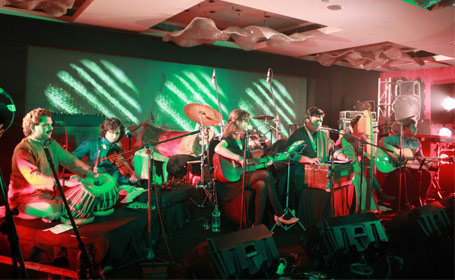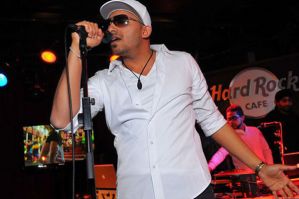IndiEarth XChange 2012: "Technology is a very important part of our industry now"

CHENNAI: With digital platforms now ruling the music industry, it has slowly carved itself as the universal music language of the current era. Global collaborations are now spearheading new soundscapes which is playing a large part in driving the change in the industry.
The session 'Digital India: Reality Check, Forward Paths' highlighted the current path where the industry is at, in terms of technology, digital marketing and promotions in various markets across the globe. The panel moderated by Samrat B of Audio Pervert, comprised of Shiv Gupta (Go:Madras), Laiq Qureshi (Urban Beat Project), Kate Welsman (DJ, Triple R Australia) and Yoav Rosenthal (Musician/IndiEarth).
With the advent of various digital platforms, people from across countries can now access different genres of music. People embracing world music is helping in making the lives of the DJs easier, Welsman highlighted. But a myth which people are believing in is that, the new breed of electronica will take over the traditional music market.
Clarifying their stands on how digital avenues are actually helpful in sharing and creating music globally, the panelists also pointed out the importance of YouTube in assessing the music and gauging what people will like and want.
"These platforms help in integrating classical and folk music in new genres. Digital has helped bring the world together and its strength is that it allows you to promote yourself in the local and international market. The scene has changed completely now," said Qureshi.
Apart from that, social media is also a very important tool in getting musicians together for festivals and other such events. Welsman said, "Technology has democratized music and even radio. Today digital radio in Australia is a big thing. But nobody realises or appreciates the importance of radio."
With sales taking the digital route now, the challenge is to find the right audience so that music reaches the right people instead of just the normal masses. An important point mentioned by Rosenthal was: 'You can gauge the income through the sale of CDs, but on digital platforms like YouTube you are sometimes unsure if your music has reached the right people.'
But inspite of all these developments in the music scene, an artiste can earn publicity and money mainly from live gigs, so building on your reputation is an important task for a musician.
Welsman also highlighted that the audiences do not have short attention spans so content should not be provided to them so easily. They should be able to find the right content through the search and discovery mode.
Qureshi pointed out, "Artistes should make music and promote it themselves because in around ten years time, the record label is going to become redundant."
Though digital has several positive aspects to it helping the industry, a few drawbacks also hold it from attaining the space and stature it should. Sound and delivery are one of the key issues affecting it. The panel stated that though the audience is listening to sounds through different delivery platforms, they still want the sound quality to be good.
Gupta added, "Artistes need to build a genuine fan base rather than doing mass advertising on facebook."
The session ended on the note that content is king and it is going to drive the music market in the coming years, so the musicians should keep their fan base engaged by developing their live gig channel and depending on radio as a medium to distribute music.














